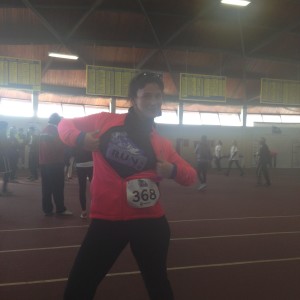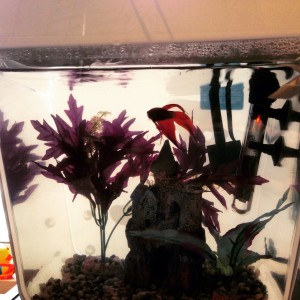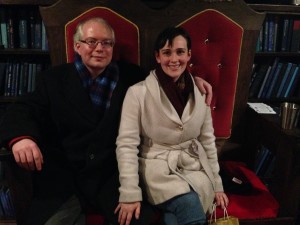I want to take a moment to touch upon something that should seem so logical it needn’t even be said. In my experience, however, that doesn’t guarantee that it has already been discussed: being nice.
Look; let’s face it; having a pretty face just isn’t enough to get you by in academia. For that matter, neither is having a pretty CV or the best publications or the most accomplishments or the most prestigious fellowships. It’s a tough world out there, and it’s a world full of pressure and stress. It can be really difficult not to let this get to you; but at least in public you need to have a smooth, unbreakable mask of niceness.
Being a nice, helpful person absolutely will take you far. Remember that tenure-track means an institution is ready to stick with you for the long haul (and that haul can be pretty long). They want to work with you; they want to see your smiling face in every faculty meeting; they want to share a hallway with you. Nothing will keep them from wanting to do that quite like being someone who isn’t pleasant to be around.
I see every interaction with other academics as an opportunity to be the kind of person that I would want to work with. Whether this interaction is via e-mail, skype, or face-to-face conferencing, each touch provides me the unique opportunity to make a good impression. That being said, I’ve had to learn how to put my bad day aside so that I can present a clean, professional image no matter what’s going on in my life.
Of course, this is sometimes easier to do than others. It’s a lot easier to be “on” in an e-mail than it is at a conference. Particularly if you are an introvert, finding the social energy to present the kind of image you need to can be rough. Make absolutely certain that you take the necessary measures to ensure success for yourself on this front (whether that means scheduling some off-time during a conference weekend, sleeping in a little later on days when you have big presentations or job talks, or making sure that you eat a good breakfast to fuel up for being your best professional self).
It should be noted that this extends to lateral networking as well as vertical networking. Networking with your peers is just as important as networking with senior academics. After all, these are the people with whom you will be looking to collaborate on book projects, grant proposals, and conference panels. These are also the people with whom you will have the most personable war-stories to tell. Knowing who else is out there doing the kind of work you are interested in also involves getting to know those people; and when you get to know those people you want to be the kind of person they want to connect with. There’s no call or need for off-putting theatrics or peacocking in lateral networking; nobody wants to be around that guy who can’t stop telling you about his AWEEEESOME most recent GIANT fellowship or job opportunity. Yea, you’re great, but networking with your peers is less about impressing and more about impressioning. Let your work speak for itself whenever possible; be proud of it, but don’t flaunt it.
Find yourself some good attitude role-models. Think about people you’ve encountered in the field who you want to see again not just for networking-related items, but also for drinks at the conference bar. What kind of qualities do these people have? What makes you want to be around them? Like I tell my acting students, keen observation is the first step to replication. I’ll be the first to admit that I’ve encountered good models in this regard, and I’ve encountered bad ones. The trick is not to let the bad ones ruffle you; the more people who choose grace under pressure, the better we can make the ivory tower of the future. Try to be like the ones who kept you going and lifted you up rather than the ones who pushed you down. Imagine what it would be like for our students if we all chose to be “lifters” rather than “pushers”. It may sound idealistic, but I do think that we grad students have the tremendous power to shape the future of academia. It’s up to us to determine what things will be like round these parts when we grow up to be the people in charge. If we start practicing the doctrine of kindness now, think about how much easier all of our lives will be.
This is not to say that we should all be pushovers; you can be firm without being unkind. But taking that extra moment to think about your actions may save some student years of class-induced angst, and will definitely improve your cosmic karma score. And it will make you look better to potential employers and colleagues.
It comes down to a few basic precepts: be kind without reason, be smart without arrogance, be helpful without patronization. These qualities, if followed, will definitely leave an impression (…and not the kind that will have folks running in the opposite direction).




